37 Week Old Baby – Milestones, Development & Care Tips
- A 37-Week-Old Baby’s Development
- A 37-Week-Old Baby’s Developmental Milestones
- Feeding
- Sleeping
- A 37-Week-Old Baby’s Care Tips
- Tests and Vaccinations
- Games and Activities
- Essential Products for 37-Week-Old Baby
- When to Consult a Doctor?
- FAQs
Babies grow up really fast, from those cute little cuddly bears to toddlers, preschoolers, and teenagers, before you even realise they will start going to college! Your little one is 37 weeks old, can you believe how fast time is flying? At this stage, your baby is more curious, active, and expressive than ever before! You might notice them crawling at lightning speed, trying to stand up, or even taking those wobbly first steps.
Now that your munchkin is almost three months away from his first birthday, do you know if his development is on track? What can you do to help your baby achieve all the important developmental milestones? As your baby becomes more active and engaged, it’s essential to provide the right care, nutrition, and stimulation to support their overall development. Let’s find out the 37-week-old baby’s milestones and development.
A 37-Week-Old Baby’s Development
A baby grows tremendously in the first year of his life, and it is very common for a baby to experience growth spurts around 36 weeks. A baby boy weighs around 19 pounds and a baby girl weighs around 18 pounds around this age. According to the World Health Organisation, a baby boy at 37 weeks may reach approximately 28 inches in height and a baby girl of the same age may be able to attain about 27 inches of height. On an average, babies may gain approximately 3 to 5 ounces of weight and approximately 0.5 inches of height in the ninth month of their birth (1). Each baby grows at a different pace, and if your baby is somewhat close to these parameters, he may be doing just fine.
[Also Read: 9 Months Old Baby Growth and Development]
A 37-Week-Old Baby’s Developmental Milestones
Here’s what you can expect from your 37-week-old infant’s development (1) (2) (3) (4).
- Your baby may be able to recognise and understand familiar sounds.
- Your baby may understand about object permanence, which means that he may remember a toy or an object and may try and find it.
- Your baby may recognise people he sees on a regular basis.
- Your baby’s vision improves, and now he may be able to focus and see things up to a considerable distance.
- Your baby may start crawling at this age. However, some babies may take a bit longer to crawl, or they may not crawl at all. Some babies also start walking at this age.
- Your baby may be able to stand on his own by holding a chair, couch, or any other support.
- Your baby may start using a pincer grasp, which means he will start using his index finger and thumb to grasp things. This grasp is important as it will help your baby hold things like his sippy cup or toys.
- Your baby can sit for longer durations by this time.
- Your baby’s vocabulary increases and he may now say words like dada, mama, papa etc.
[Also Read: 9 Months Old Baby Milestones]
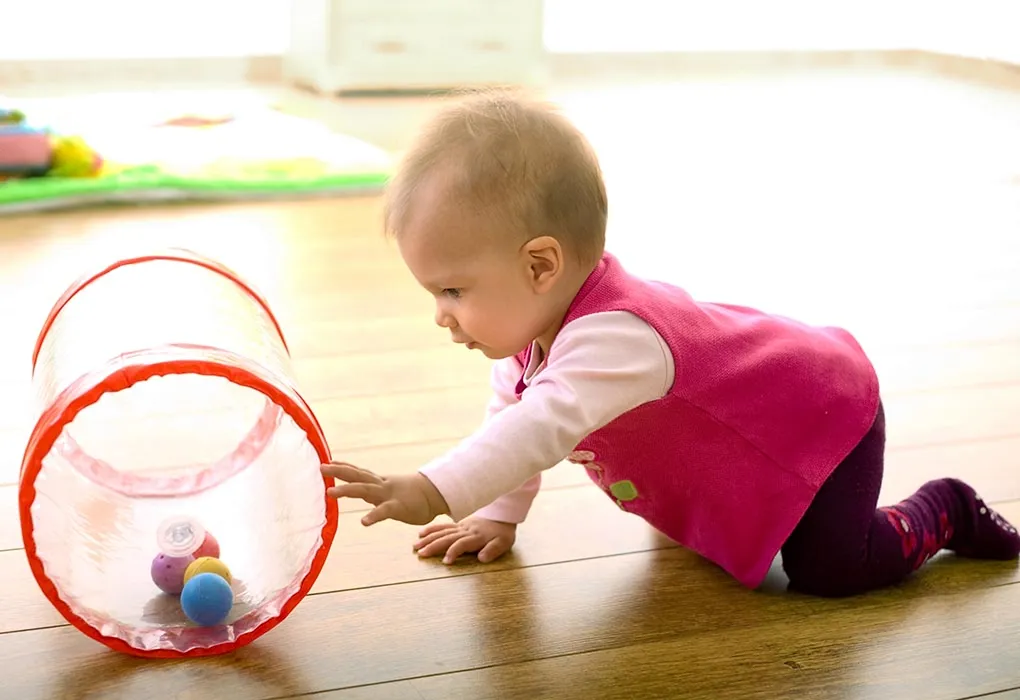
Feeding
You may see a major change in your how your baby’s food schedules and habits. He may become more independent around this age and may want to hold his feeding bottle or sippy cup on his own. On an average, your baby may be requiring around 700 to 900 calories in a day (5), and half of these calories he should get from breastfeeding, which means your baby, may need roughly 700 millilitres of milk on a daily basis. This may be just the right age for your baby to make the transition from a bottle to a sipper cup. Though it is normal for babies to show resistance, you can begin by offering water in a cup and gradually replace it with milk. Also, at this stage you should offer food first, followed by breast milk or formula. He should take three meals and two small snacks in a day. You can start giving a variety of foods to him such as sweet potato, bananas, apples, avocado, tofu etc (6). In order to determine whether your baby is eating or feeding well, keep a tab on his wet and soiled diapers. Also, monitor his weight to see if he is getting proper nutrition.
[Also Read: 9 Months Old Baby Food]
Sleeping
A baby’s sleeping pattern worries parents the most. The good news is that your baby may sleep for 14 to 15 hours a day by this age. This is divided into two parts, night-sleep of approximately 10 to 12 hours and one or two day-naps of 1 to 2 hours each. It is seen that most babies (approximately 70%) sleep uninterrupted for up to 8 to 12 hours at night by this age (7). He may not sleep peacefully in case he is unwell because of growth spurts or simply because of teething woes. However, if your baby is not sleeping at night or giving you trouble as far as his sleep is concerned, you can try sleep-training. This is because at this age your baby may be all set to be sleep-trained. You can make a sleep routine for him like massaging, bathing, singing lullabies etc. to give a clue to your baby that it is bedtime. It is okay if your baby experiences temporary sleep issues, he will get over that soon.
[Also Read: 9 Months Old Baby Sleep Basics]

A 37-Week-Old Baby’s Care Tips
Here are some tips that you can follow to take care of your 37-week-old baby (3) (4).
- Brush your baby’s teeth using fluoride toothpaste. You can teach him to spit it out too.
- You can buy a rear-facing car seat for your baby. It is a good idea to opt for a convertible seat so that it can be used later.
- You should baby-proof your apartment because your baby may crawl by now and he may reach to all the places that are not safe for him.
- Keep smaller objects out of reach as babies have a weird habit of putting everything in their mouths.
- Keep all kinds of medicines out of bounds.
- If you have stairs at home, secure that area too by placing a gate.
- You can involve your baby in activities that enhance his motor, communication, cognitive and other skills.
Tests and Vaccinations
A healthy baby is a happy baby, and this is why you should never miss the appointment with your baby’s paediatrician. On your visit, your doctor may check your baby’s weight and height and would do other physical examination to establish that your munchkin is making the expected physical progress or not. Here are some tests and vaccinations that your doctor may recommend include the following:
1. Blood Tests
Your physician may suggest a blood test to establish any symptoms of anaemia in your baby. This is because it is very common for babies to become anaemic around this age because the mother’s milk lacks iron and thus the baby needs to rely on other sources of food to compensate for this requirement. If your baby is a fussy eater, there are chances that he may have lower levels of iron in his blood. Also, the tests may be conducted to establish any symptoms of lead poisoning.
2. Vaccinations
If your baby has been given his third shot of Hepatitis B at 6 months, then this may be the right time to administer the shot.
Games and Activities
Here are some games and activities that will keep your baby engrossed and help him develop his skills (2) (4):
- You could hide a squeaky toy under a blanket or behind you and let your baby look for it. This develops object permanence in him.
- You can play peek-a-boo with your baby. Hide behind a curtain or door and let your baby find you.
- Give a box full of toys of various shapes, sizes, and texture. Let your baby explore the contents of the box.
- Take a big ball, roll it towards your baby and ask your baby to roll it back towards you.
[Also Read: 9 Months Old Baby Games and Activities]
Essential Products for 37-Week-Old Baby
A 37 weeks baby is more active, curious, and eager to explore the world around them. To support their growing needs, having the right essentials can make a big difference in their comfort, safety, and development. Here are some must-have products to help your little one thrive.
1. Furniture Safety Straps
As your baby becomes more mobile and adventurous, securing heavy furniture is a must to prevent accidents. Furniture safety straps help anchor items like bookshelves, dressers, and TVs to the wall, reducing the risk of tipping over if your little one tries to climb or pull on them. Look for strong, adjustable straps that are easy to install for added peace of mind.
2. Soft Sippy Cup
Transitioning from a bottle to a sippy cup is an important step at this age. A soft spout sippy cup is gentle on your baby’s gums and helps them develop independent drinking skills while reducing spills. Opt for a BPA-free, easy-to-hold design for a smooth transition.
When to Consult a Doctor?
Here are some issues that may evoke concern in parents and may require a doctor’s consultation (4):
- If your baby is unable to sit using other props.
- If your baby does not lay pressure or put weight on his legs when you make him stand.
- If your baby does not babble words like papa, dada, mama etc.
- If your baby does not react or respond when you call his name.
- If your baby does not recognise familiar objects or people.
- If your baby is not able to hold or pass any object.
If any such developmental delays are observed, you may like to seek your doctor’s advice.
FAQs
1. Is it normal for my baby to refuse certain foods?
Yes! At this stage, babies can be picky as they explore new tastes and textures. If your baby refuses a food, try offering it again later without pressure. Keep mealtimes fun and stress-free while introducing a variety of flavours to expand their palate.
2. How can I help my baby with separation anxiety?
It’s normal for babies to experience separation anxiety around this age. Practice short separations, offer reassurance, and keep goodbyes calm and confident. Playing peek-a-boo and leaving them with familiar caregivers can also help ease their anxiety.
3. How can I encourage my baby’s speech development?
Talking, reading, and singing to your baby regularly can help strengthen their language skills. Respond to their babbles, name objects around them, and use expressive tones to keep them engaged. Simple gestures, like waving or clapping, also encourage communication.
Your baby is likely to turn into a little explorer around this age; we suggest that you let him explore meanwhile keeping a close eye on him. Be there for him and let him turn into an independent and confident child.
References/Resources:
1. Children’s Hospital of Orange County – 7-9 Month Old Baby Development & Milestones
2. Centers for Disease Control and Prevention – Important Milestones: Your Baby By Nine Months
3. Cleveland Clinic – Well-Baby Care Visits & Developmental Milestones (Age 0-12 m)
4. Nemours KidsHealth – Learning, Play, and Your 8- to 12-Month-Old
5. American Academy of Pediatrics – Sample Menu for a Baby 8 to 12 Months Old
7. Nemours KidsHealth – Sleep and Your 8- to 12-Month-Old
Previous Week: 36 Weeks Old Baby
Next Week: 38 Weeks Old Baby
Was This Article Helpful?
Parenting is a huge responsibility, for you as a caregiver, but also for us as a parenting content platform. We understand that and take our responsibility of creating credible content seriously. FirstCry Parenting articles are written and published only after extensive research using factually sound references to deliver quality content that is accurate, validated by experts, and completely reliable. To understand how we go about creating content that is credible, read our editorial policy here.






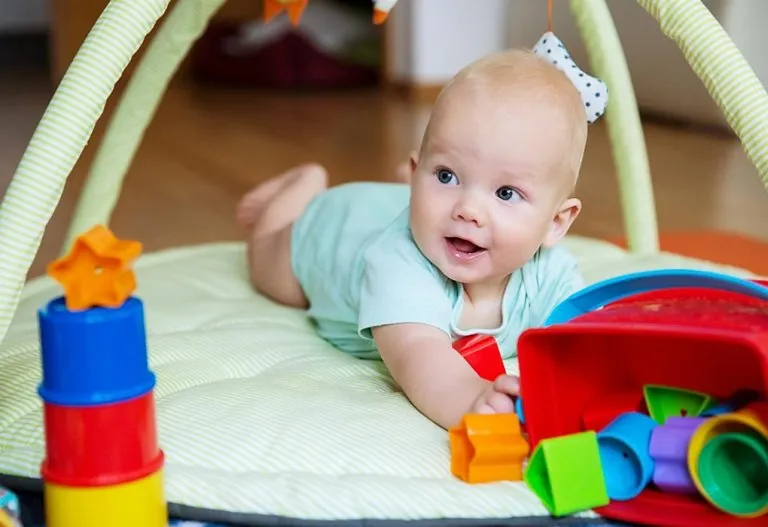
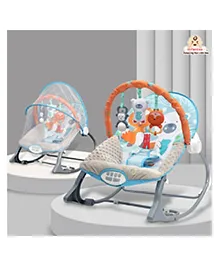
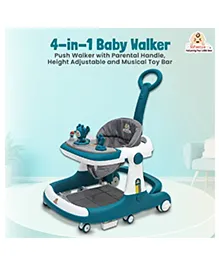
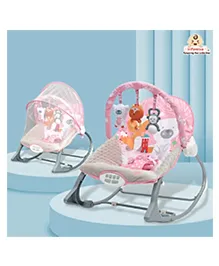
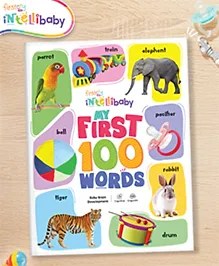
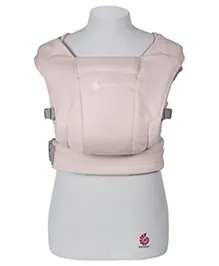
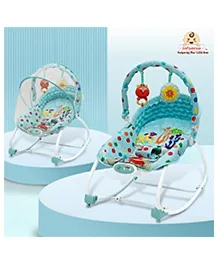
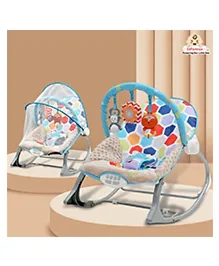
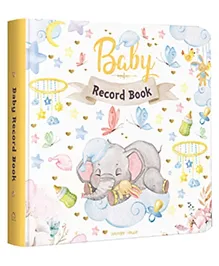
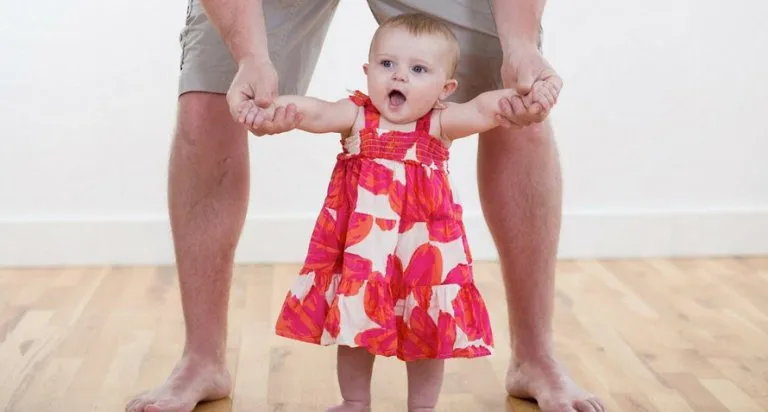
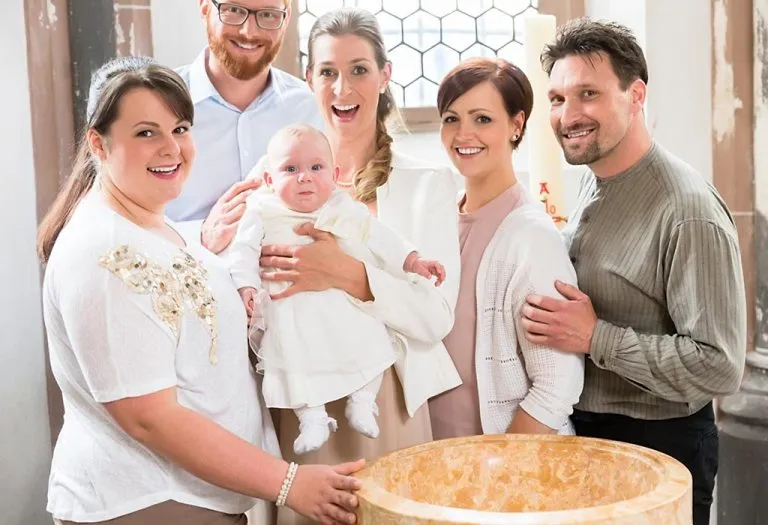
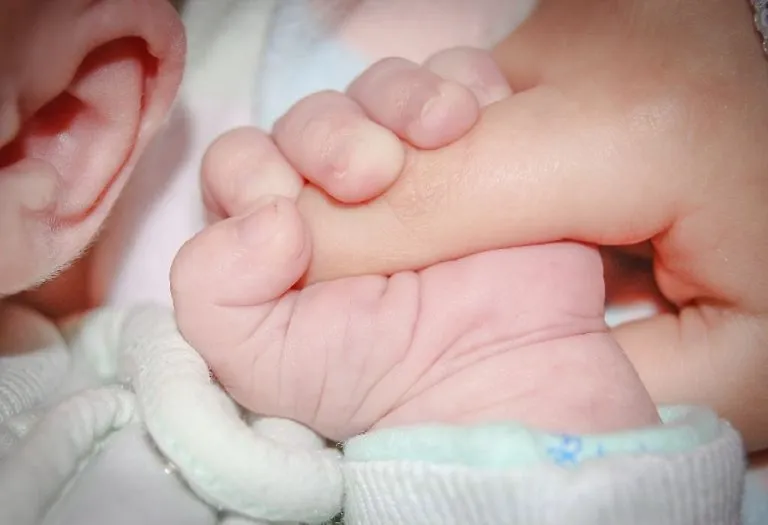
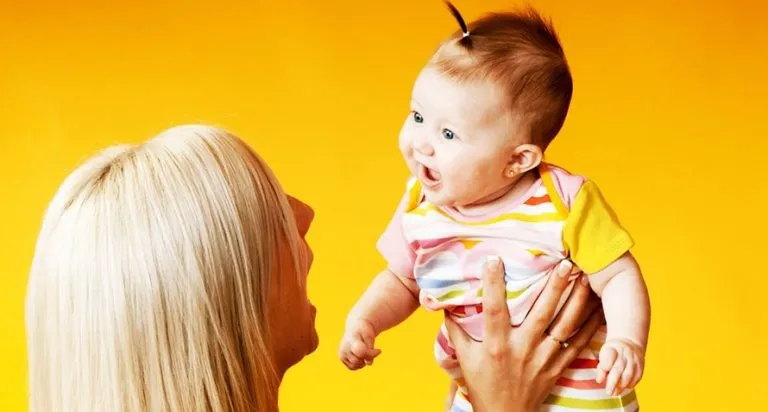
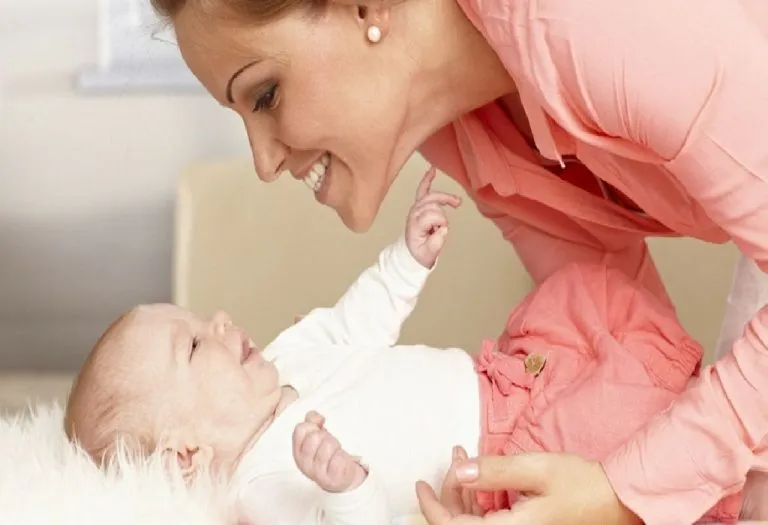
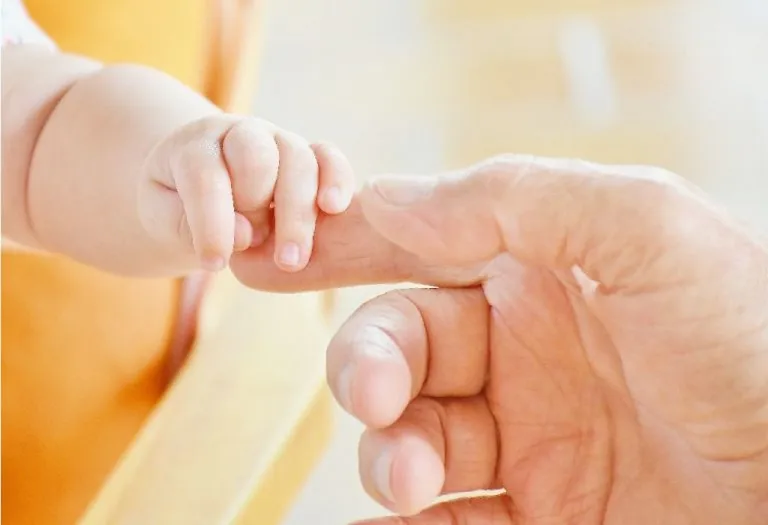

.svg)


















